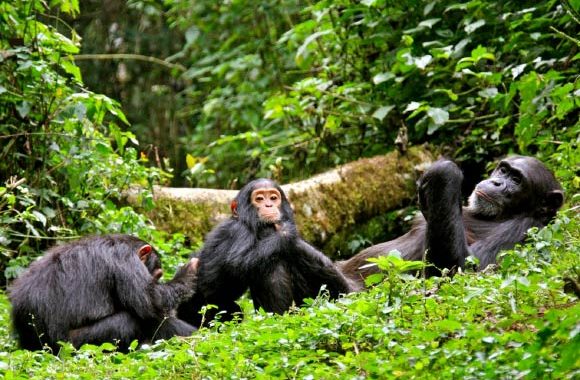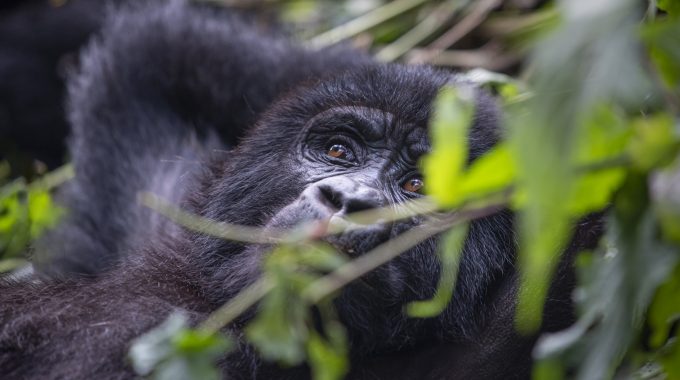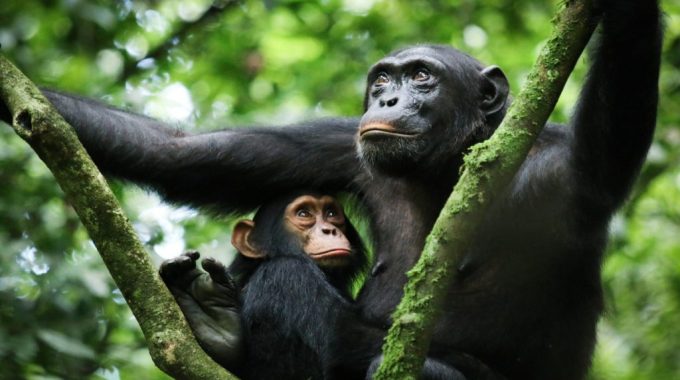Which African country has the most chimpanzees? The African country with the most chimpanzees is…
What is Kibale National Park known for?
What is Kibale National Park known for? Kibale National Park, located in western Uganda, is renowned for its rich biodiversity, particularly its primate populations, and lush tropical forest environment. Here is a detailed overview of what makes Kibale National Park unique:

-
Primate Diversity
Kibale National Park is often called the “Primate Capital of the World” because of its exceptional primate diversity. It is home to 13 primate species, including:
- Chimpanzees: Kibale is one of the best places in the world for chimpanzee trekking. The park has over 1,500 individuals, and visitors can engage in chimpanzee habituation experiences, spending extended hours observing the chimps in their natural habitat.
- Red Colobus Monkeys: An endangered species rarely seen in other parts of Uganda.
- Black-and-White Colobus Monkeys
- L’Hoest’s Monkeys
- Blue Monkeys
- Ugandan Red-Tailed Monkeys
- Grey-Cheeked Mangabeys
- Vervet Monkeys
- Potto: A nocturnal primate.
-
Diverse Ecosystems
What is Kibale National Park known for? Kibale spans 795 square kilometers and features a variety of ecosystems:
- Tropical Rainforest: Dominates the park, with dense foliage and towering trees.
- Woodland and Savannah: Found in the northern parts, offering habitat variety.
- Wetlands and Swamps: contribute to the park’s biodiversity and provide homes for aquatic species.
With over 375 bird species, Kibale is a birding paradise. Notable species include:
- Great Blue Turaco
- African Grey Parrot
- Green-Breasted Pitta
- Black Bee-Eater
-
Unique Mammal Species
In addition to primates, Kibale hosts a variety of mammals, such as:
- Forest Elephants: A smaller and more elusive subspecies of the African elephant.
- Bush Pigs
- Duikers
- Giant Forest Hogs
Some rare sightings include leopards and golden cats.
-
Spectacular Flora
The park is home to over 350 tree species, some towering up to 55 meters high and estimated to be over 200 years old. The dense forest canopy is a hallmark of the park, and it plays a vital role in carbon storage and water conservation.
-
Cultural and Community Experiences
- Visitors can engage with the Batooro and Bakonzo communities living near the park, learning about their cultures, traditional practices, and how they coexist with wildlife.
- The Bigodi Wetland Sanctuary, managed by a local community, is an excellent spot for birding, primate sightings, and cultural tourism.
-
Research and Conservation
Kibale is a significant research hub for primatologists and ecologists. Institutions like Makerere University conduct long-term studies here, particularly on chimpanzees and forest ecosystems.
-
Accessibility and Tourism Activities
Kibale National Park is easily accessible from key Ugandan cities and integrates well into broader safari circuits. Popular activities include:
- Chimpanzee Trekking and Habituation
- Nature Walks: Both day and night hikes offer opportunities to see nocturnal creatures like pottos and bush babies.
- Birding Excursions
- Cultural Tours
- Forest Canopy Exploration
Kibale National Park is an ideal destination for wildlife enthusiasts, birders, researchers, and anyone looking to immerse themselves in the wonders of Uganda’s rainforest.



